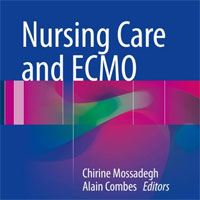Tag: treatment

Sepsis and Septic Shock: An Issue of Critical Care Clinics
Shock is caused by the decreased flow of blood to the body tissues due to circulatory system related problems. Sepsis refers to a life-threatening condition where the body causes injury to its own organs and tissues in response... read more

Sepsis: Methods and Protocols
This detailed volume presents a variety of animal models that are commonly used to study sepsis and some key procedures to measure specific disease outcomes. The chapters describe well-established surgical and nonsurgical... read more

New Study for Opioid Use Patterns
The purpose of this study is to as certain and describe the trajectories of pain experienced by a diverse group of opioid naive patients who are prescribed an opioid analgesic for acute pain. Using a digital health-based... read more

The Mysterious Vanishing of MIS-C
Whilst the overwhelming majority of Covid-19 infections in healthy children are mild or asymptomatic, the serious risk which remained was of the hyperinflammatory syndrome known as MIS-C (Multi-system Inflammatory Syndrome... read more

Pericarditis and Myocarditis in the ED
Chest pain is one of the most common presentations to the emergency department (ED) and includes a wide differential diagnosis. In today’s post, we will review a less common cause of chest pain seen in the ED: pericarditis... read more

Hydroxychloroquine Not Associated With Decreased Risk for COVID-19 Hospitalization
Results of a multicenter, double-blinded, randomized controlled trial found no evidence to support the use of hydroxychloroquine for COVID-19 infection in the outpatient setting. These findings were published in The Lancet... read more

Setting up a Rescue ECLS Program
Extracorporeal life support (ECLS) is a high-risk, lifesaving medical treatment that is typically limited to centers that can support a comprehensive ECLS program. Rescue programs can bridge the gap in care between ECLS centers... read more

Effect of Antiplatelet Therapy on Survival and Organ Support-Free Days in Critically Ill Patients With COVID-19
Among critically ill patients with COVID-19, treatment with an antiplatelet agent, compared with no antiplatelet agent, had a low likelihood of providing improvement in the number of organ support–free days within 21 days. The... read more

Probiotics for the Prevention of Ventilator-Associated Pneumonia
Presently, there is conflicting evidence regarding the efficacy of probiotics in the prevention of ventilator-associated pneumonia (VAP). This meta-analysis was conducted to update current clinical evidence and evaluate the... read more

Prevalence of COVID-19-Associated Pulmonary Aspergillosis
First reports of cases and case series of COVID-19-associated pulmonary aspergillosis (CAPA) emerged during the first months of the pandemic. Prevalence rates varied widely due to the fact that CAPA was, and still remains,... read more

Physiological Responses to In-Bed Cycle Ergometry Treatment in ICU Patients with External Ventricular Drainage
These data suggest that supine CE in a heterogeneous cohort of neurocritical care patients with EVDs is safe and tolerable. Larger prospective studies are needed to determine the efficacy and optimal dose and timing of supine... read more

High Dose Insulin and Euglycemia Therapy for Beta-adrenergic Receptor Treatment and Calcium Channel Antagonists Overdose
High dose insulin with dextrose supplementation is indicated for patients with calcium channel blocker and beta blocker overdose and signs of cardiac toxicity. Mechanisms are not completely elucidated, but mostly related... read more

Hemodynamic Management Challenges of Septic Shock
Sepsis is one of the main causes of admission to the Intensive Care Unit (ICU). It is defined as a life-threatening organ dysfunction, caused by dysregulated host response to infection (Singer et al. 2016). Septic shock... read more

General Anesthesia vs. Sedation Using Hemodynamic Control During Intraarterial Treatment for Stroke
The functional outcomes 3 months after endovascular treatment for stroke were similar with general anesthesia and sedation. Our results, therefore, suggest that clinicians can use either approach. Of 351 randomized patients,... read more








